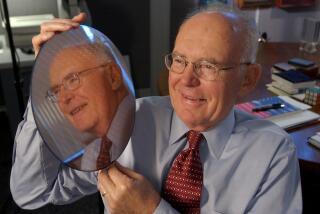Galvin Is Elected Chairman at Sematech
Robert W. Galvin, chairman of the executive committee of Motorola, has been elected chairman of Sematech, the Austin, Tex., industry-government research consortium devoted to advanced semiconductor manufacturing.
Galvin replaces Charles Sporck, who led the drive to create Sematech. Sporck earlier this month announced his retirement as president and chief executive of National Semiconductor. It was not announced at that time that Sporck was also relinquishing his role at Sematech.
“The semiconductor industry and the nation owe Charlie Sporck their gratitude for his leadership in bringing Sematech from a concept to a reality,” W. J. Spencer, Sematech president and chief executive, said in a statement. “I am very honored to have Bob Galvin as part of the Sematech team. We are fortunate to have an industry leader of his stature.”
Galvin was another of the high-profile electronics industry executives who worked hard for the establishment of the research consortium, and Motorola was one of the founding member companies.
Galvin, 68, is well respected throughout the industry and is revered by employees of Schaumburg, Ill.-based Motorola, according to company observers. All but his closest aides call him “Mr. Galvin.”
He served as chairman of Motorola until Jan. 11, 1990. He joined the company in 1940 and took the reigns in 1959 after the death of his father and company founder Paul Galvin.
His push for extremely low error rates, dubbed “Six Sigma,” earned Motorola high-quality ratings. Now, companies across the country are adopting the “Six Sigma” concept.
Industry experts said Galvin was an obvious choice to assume the leadership role at Sematech.
“It looks as if it’s becoming an elder statesman’s role,” one analyst said. “And it’s good to have someone there with a high profile, especially since they don’t have someone of (industry pioneer Robert) Noyce’s stature as chief executive.” Noyce, who with Sporck had been one of the computer chip industry’s chief advocates in Washington, died last June.
More to Read
Inside the business of entertainment
The Wide Shot brings you news, analysis and insights on everything from streaming wars to production — and what it all means for the future.
You may occasionally receive promotional content from the Los Angeles Times.








